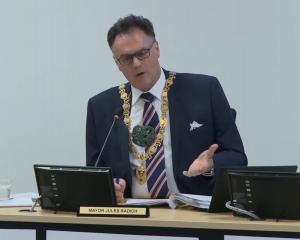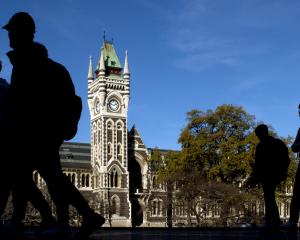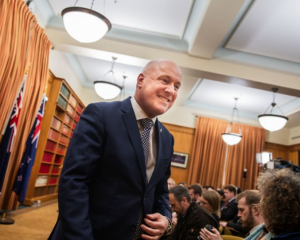Immigration Minister Michael Woodhouse says changes will be made to the number of migrants who can get residency in New Zealand.
The changes include temporarily closing the parent category to new applications and reducing the number of places for family members of migrants from 5500 to 2000 a year.
Do not be mistaken. These changes are not being made for the right reasons or even reasons that can be adequately supported by evidence.
The changes are being made because National Party polling has indicated immigration is a hot-button issue for party supporters.
A year out from the election, Prime Minister John Key will know immmigration, particularly in New Zealand's largest city, Auckland, is causing angst as voters believe house prices are being unfairly pushed higher by rich overseas investors or immigrants arriving with large amounts of cash.
Those struggling to find accommodation for homeless people, or people wanting to help those on low incomes into suitable social housing will be left wondering about the latest move from the Government.
But they will find no matter how much noise they make, unless the National Party polling indicates homelessness is a topic of concern for its supporters, or social housing is rattling consciences in Christmas cocktail parties, they will not become priority issues for the Government.
Social housing and homelessness are not right-wing issues. But they do concern Labour, the Green and Maori Parties. Immigration has been an issue played to the maximum by New Zealand First leader Winston Peters, whom National sees as a person capable of eroding its support in the regions.
Last year China was the largest source country of permanent migrants to New Zealand on 17%, followed by India (16%) and the United Kingdom (11%).
The changes in the two-yearly review of the residency programme will also result in the numbers given residency trimmed from 90,000-100,000 to 85,000-95,000.
China is also the largest source country for family-sponsored migrants and made up 50% of residence approvals in the parent category.
Mr Woodhouse says concerns parents of migrants are not meeting commitments to financially support themselves has prompted the decision to temporarily close the parent category.
National was critical of Labour singling out people with Chinese-sounding names buying into the Auckland housing market as it campaigned to raise awareness about overseas buyers.
Now, National will stand accused of doing the same by cutting back on the parent category.
Skilled migrants will also require more points to get residency than in the past. BusinessNZ says it is important immigration setings allow the entry of skilled migrants while maintaining the overall level of migration that works for New Zealand.
Employers also want to see more work done on ensuring in-demand skills remain a key priority. More work is needed to ensure the criteria weightings of the points under the skilled migrant category deliver long-term economic and social benefits to New Zealand.
The Government has made much of its recent announcements on social housing and housing for the most vulnerable. But, in essence, little has been done.
To be fair, the Government has been hamstrung by two major issues: a shortage of skills and red tape associated with the needed expansion of Auckland City's boundaries.
Most people, it seems, are happy for social housing to be built. Just not in their backyards.
The Government has had eight years to progress social housing, along with help for first-home buyers, but progress has been slow and is not of particular concern because these are not issues which concern the majority of New Zealanders who can turn a blind eye.
It is doubtful homeowners will thank the Government for reducing the value of their homes which they are now borrowing against.
The immigration changes are strictly down to political advantage: nothing more, nothing less.












